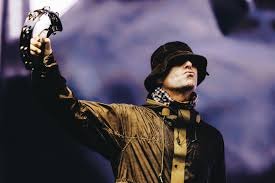
Oasis at Wembley Stadium: A Reunion Worth Believing In
Prescience Media: When Oasis announced their long-anticipated return to the stage nearly a year ago, few believed the Gallagher brothers would make it this far. Cynics predicted another implosion before summer, citing the notorious 2009 Paris bust-up that ended the band’s first life. At best, doubters imagined an overpriced ego trip. At worst, a shambolic disaster.
Yet on a sweltering night at Wembley Stadium before 90,000 fans, Oasis proved them wrong. What unfolded was not just a reunion, but a triumphant reclamation of their place as one of Britain’s last true stadium rock bands. The comeback was not only real, it was overwhelming.
From the opening chords of “Hello,” the setlist carried the weight of a statement. “Talk Tonight” and “Stand By Me” emerged as hymns of reconciliation, while “Fade Away” took on added poignancy as a meditation on time’s passing. The closing salvo of “Live Forever” and “Rock ’n’ Roll Star”, swaggering anthems that once embodied defiance, felt almost elegiac, their bravado edged with melancholy.
The night’s defining moment arrived early with “Acquiesce.” A song built for two voices, it demanded Liam’s snarling verses and Noel’s soaring chorus. Hearing them together again transformed the performance into something more than nostalgia. Liam, still clad in a zipped-up jacket and scarf despite the July heat, sounded revitalised. Noel, voice clear and fervent, sang lines about belief and unity with a conviction that seemed almost uncharacteristic. For a fleeting moment, band and audience alike seemed to levitate.
If there was an unspoken story at Wembley, it was the rediscovery of sentiment between two brothers who have spent much of the past decade trading barbs from afar. “Because we need each other, we believe in one another,” Noel sang — and for once, it didn’t sound ironic.
The concert also revealed Oasis’ extraordinary home-field advantage. In Britain, they are not merely a band but a cultural institution, woven into the fabric of everyday life in a way no American equivalent quite matches. The mass sing-alongs turned Wembley into a giant pub chorus, every fan a participant. Even B-sides like “Half The World Away” were belted with devotion, a reminder of how deeply embedded these songs are in the national consciousness.
This sense of communal release is perhaps Oasis’ greatest strength. Their songs are not literary masterpieces, nor are they structurally complex. What Noel Gallagher has always written — and what Liam embodies — are tunes designed for collective euphoria. At Wembley, those songs collapsed the scale of a stadium into intimacy, strangers embracing as old friends.
Of course, scepticism remains. The bond between Liam and Noel is fragile, and history suggests the truce may not last. But for now, Oasis are uniquely positioned to deliver something few others can: a catalogue of songs instantly recognisable to tens of thousands, performed with enough fire to still matter.
They closed, inevitably, with “Champagne Supernova.” Liam balanced a tambourine on his head, part absurd theatre, part rock ’n’ roll ritual. Like Oasis themselves, it was both ridiculous and magnificent ,and it stayed perfectly in place.
At Wembley, against the odds, Oasis were back. And for two extraordinary hours, it felt like they had never been away.
Kevin Rademeyer

Post a comment